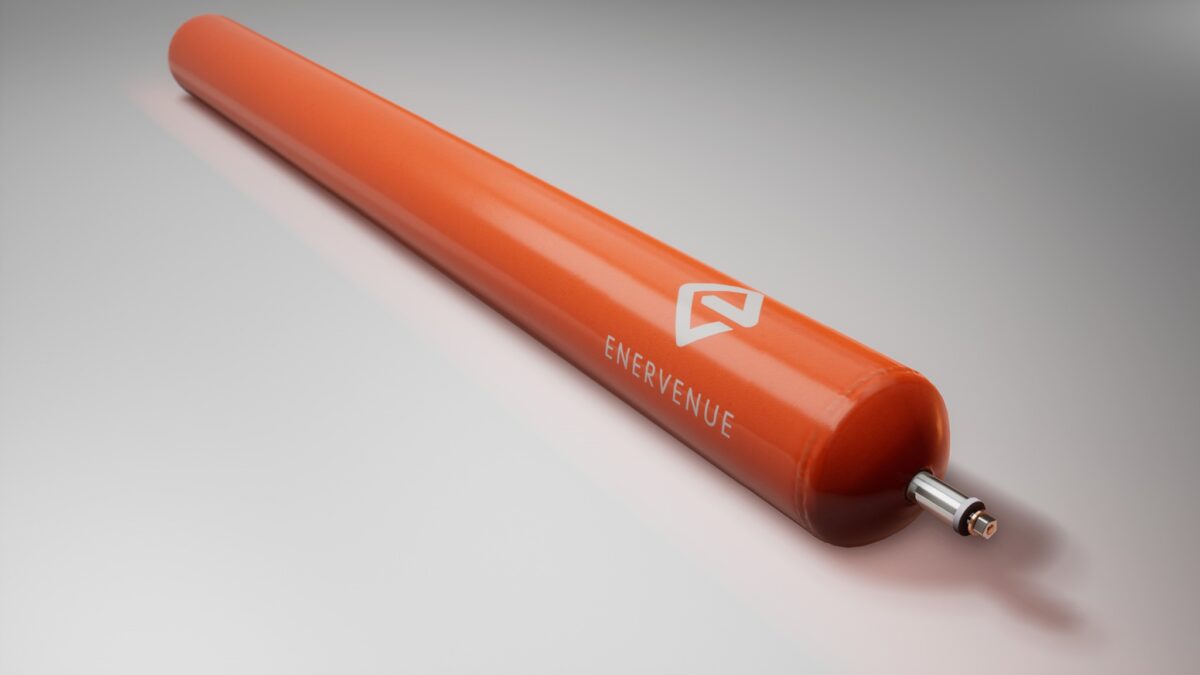Electrical engineering company Avid Group has inked an agreement that will allow it to offer its customers in Australia Enervenue’s long-duration nickel-hydrogen energy storage ‘vessels’ that the California company says deliver demonstrable advantages over lithium-ion alternatives for grid-scale, commercial, and industrial applications.
Enervenue said its vessels, essentially the cells of the energy storage system, can withstand 30,000 duty cycles and can handle long-duration as well as high-power shorter duration applications. The company said the battery’s efficiency ranges from 80% to 90%, depending on the cycle rate, and the energy density of its nickel-hydrogen technology is equal to or better than lithium-ion batteries.
Enervenue said its battery technology can operate at temperatures between -40 and 60 Celsius and is backed by a 20-year/20,000-cycle warranty that guarantees at least 88% battery capacity remaining after that period.
Avid Chief Operating Officer Jake van Rensburg said the Perth-based company plans to install Enervenue’s energy storage vessels at its manufacturing facility and make the technology available to customers for use in commercial and industrial, mining, and microgrid applications across Australia.
“The installation of energy storage vessels at our own manufacturing site promises to significantly reduce our peak-time energy costs, while showcasing the technology’s operational excellence,” he said.
“Once that installation is complete, the site will serve as a reference for our partners to see, firsthand, the wide-ranging benefits of this advanced energy storage solution and the opportunities available for their own applications.”
Enervenue Chief Revenue Officer Randall Selesky said the company’s nickel-hydrogen battery technology is especially well suited for Avid’s customers, many of which operate in edge-of-grid or off-grid locations.
Selesky said the energy storage vessels are also ultra-low maintenance, with the near-set-and-forget resilience of its technology delivering a lower levelised cost of storage than lithium-ion chemistries. He also noted that the nickel-hydrogen technology does not have the thermal runaway risk of lithium-ion batteries.
“Avid customers with remote commercial, industrial, mining, and microgrid use cases will realise especially transformative benefits due to the resiliency and reduced operational expenses our technology offers,” Selesky said.
This content is protected by copyright and may not be reused. If you want to cooperate with us and would like to reuse some of our content, please contact: editors@pv-magazine.com.









3 comments
By submitting this form you agree to pv magazine using your data for the purposes of publishing your comment.
Your personal data will only be disclosed or otherwise transmitted to third parties for the purposes of spam filtering or if this is necessary for technical maintenance of the website. Any other transfer to third parties will not take place unless this is justified on the basis of applicable data protection regulations or if pv magazine is legally obliged to do so.
You may revoke this consent at any time with effect for the future, in which case your personal data will be deleted immediately. Otherwise, your data will be deleted if pv magazine has processed your request or the purpose of data storage is fulfilled.
Further information on data privacy can be found in our Data Protection Policy.